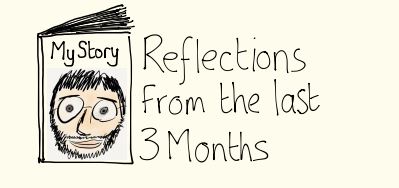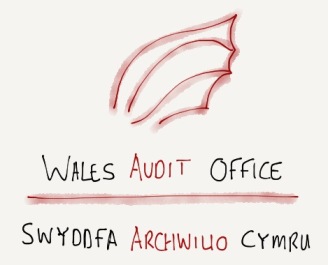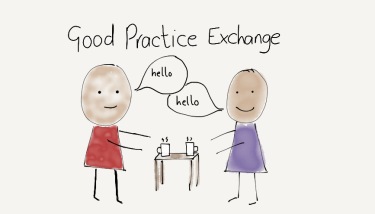 The 18th March was the last time I blogged on this site, this is probably one of the longest periods of no activity on my blog, but yet one of the busiest periods of work I’ve had as well. I’ve had so many blog post ideas in my head which I simply haven’t found the time or better still haven’t actually prioritised in those 3 months for various reasons. So this inevitably ends up being a very long post as I clearly don’t have enough time to write a set of shorter posts 🙂
The 18th March was the last time I blogged on this site, this is probably one of the longest periods of no activity on my blog, but yet one of the busiest periods of work I’ve had as well. I’ve had so many blog post ideas in my head which I simply haven’t found the time or better still haven’t actually prioritised in those 3 months for various reasons. So this inevitably ends up being a very long post as I clearly don’t have enough time to write a set of shorter posts 🙂
As I reflect back on the last 3 months in particular I get sense that the pace and scale of change (here in Devon and other places) is rapidly increasing and I need to challenge myself to stay committed to blogging regularly as I fundamentally believe that open practice and open thinking is a critical part of the culture that needs to grow and scale and support those in and around the sector to connect, inspire and challenge each other.
The two biggest themes that come through the activities I’ve been involved in over the last 3 months are: Collaboration and Design – Nothing I do really directly starts with Digital which used to be the case a while back…maybe that is my approach or the organisational awareness, perhaps both in equal measure. But it is great to have more in-depth conversations around the design of things.
So here are some highlights?
Team Delivery
The team have been VERY busy redesigning and redeveloping the council website and we have had some significant pieces of work go live recently. None of this is anything I have done, this is purely me being very proud of the team on some key projects
These projects have been fantastic examples of how the team have followed the Government Digital Service (GDS) phases of developing digital services – discovery, alpha, beta and live – from end to end. Some of the key challenges have not been within the team but from across other areas who have not yet fully appreciated the shift in our role and approach.
Sarah in the team has blogged about all the work that happened through the discovery, alphas, beta and live versions of Educations and Families and it was a real team effort.
The team have also started to share the development journey around building the new homepage too again a huge team effort and not just our small team but the whole of Communications – the story starts in this post by Matt and this one from Tim. There are more posts planned as part of this journey so keep an eye on the teams posts on Rework Devon
Working and Collaborating with Public Health Commissioners
It has been a pleasure to work with some of my public health colleagues who are really engaged in Devon’s new operating model (a framework for how we work) and that has meant that they are prepared to fundamentally challenge assumptions, seek new perspectives and invite new collaborations to discover new solutions. One of the outcomes of that was realised on Monday this week when as part of a commissioning process, we ran a “Discovery Day” to help clarify the problem relating to a future healthy lifestyles service. From our perspective it was certainly a success, it really focused us all on understanding the target audience and defining the problem. We developed 4 broad persons loosely based on mosaic data and public health intelligence. I tweeted a photo of the 4 personas – see below
The additional aspect to this commissioning process is that I am also supporting the Assistant Director directly through our joint submission to participate in the Far South West Commissioning Academy, which is a local franchise of the Cabinet office Commissioning Academy.
The Commissioning Academy is a development programme for senior commissioners and those responsible for transforming service delivery in all parts of the public sector, including, local authorities, health bodies, justice organisations and central government
The Cabinet Office has been running a Commissioning Academy since 2013, designed to help senior commissioners learn from the example of the most successful and innovative commissioning groups to deliver more efficient and effective public services.
The programme is for 8 days over a 6-8 month period and consists of master classes, workshops, guest speakers, site visits and peer challenge and covers issues, such as:
- Whole-systems thinking, bringing all facets of public services together to tackle issues
- Systems leadership
- Working with the voluntary and community sector
- Behavioural insights
- Market engagement and development
- Alternative funding models
- Joint commissioning across organisational boundaries
- New models of delivery
Participants of the programme are also required to develop a 100 day plan post development to support transformational change in the local area.
This is an exciting opportunity not just to deliver radical change within this area but also to gain new skills and insights as part of the programme. I’ll be sharing more as the programme develops around my learning and insights i gain from the programme itself.
Design Thinking in Public Services Programme (LGA and Design Council)
In May we received an email inviting us to a launch event about an opportunity to submit an application into a design thinking programme – Design in the Public Sector, developed by Design Council and supported by the Local Government Association – cost of participation is fully subsidised as well which made it more of an attraction.
This is a short extract from the email:
There is a rapidly growing interest in design thinking in central and local government and the contribution it can make towards addressing the challenges you face.
Key design principles, methods and tools such as understanding users’ needs, prototyping, visual techniques and working collaboratively can all be applied to service, system and digital challenges in the public sector to great effect.
If your organisation is based in the south-west of England and you have a current or future service delivery challenge which could benefit from a different approach, this could be your opportunity to gain support through a proven, innovative accelerator programme.
So myself a colleague from our organisation change team (Kevin Gillick) went along, got inspired and pulled together an application, engaged some internal colleagues, the Chief Executive, a Cabinet Member and pulled together a core team and we were lucky enough to be successful. The programme kicks off on the 15th and 16th July in Bristol. I’ll be writing a joint blog post for Rework Devon shortly with Kevin to share our aspirations, expectations and challenges. We are committing to being open through the whole programme so expect to see and read lots of reflections, learning, opportunity and no doubt failures.
Beyond the Smart City
So the awesome folks at ODI Devon (Martin, Simon and Lucy) have asked me to oversee one of the most important events in the year. From the 25th to the 27th of June ODI Devon, alongside the Met Office, is bringing together talks, workshops and, most importantly, people to explore what’s needed for better connected, greener, more human Smart initiatives.
The whole programme looks superb, the speaker list is amazing, the workshops sounds perfect.
To be asked to help out is such an honour as I know how hard they have worked to get to this point and the fact the event is happening at all is such a testament to the excellent work and determination of those awesome folk behind ODI Devon.
I can’t wait for it to all kick off and support them, I hope you can support them too by coming along.
The website has all the details: http://beyondthesmartcity.com/
Final reflections and some additional highlights
We’ve also been looking at some European funding streams around innovation which has developed some interesting relationships and connections with colleagues in the UK and across Europe, not sure what will happen but the networking has been invaluable.
A couple of weeks ago a colleague from Buckinghamshire County Council came down for a bit of a joint show and share which was a great opportunity for myself and colleagues in the council to share some learning around some innovative projects. It was refreshing getting an external perspective on some of the activity we have been doing and I’d suggest that we don’t often reflect how far we have come until we stop and share that journey. It was also great to hear about the great work Buckinghamshire are doing and we have much to learn from them…so this is really the start a many conversations.
There is so much internal activity happening around the digital agenda that I’ll follow this up in another post at some point…there is so much we can share.
Also the UnMentoring which is part of the LocalGov Digital offer linked to a prototype change academy is going VERY well, the feedback is fantastic, the connections across the sector are clearly growing (small-scale) but it is something which can grow and generate huge value in simply connecting people to share learning and experiences. If you haven’t signed up feel free to do here.
A couple of additional highlights one of which i can’t say much about at the moment – but it is one of the most interesting projects that I believe will have a radical impact on me and my team and how we work and collaborate as well as how we connect and network across teams.
Also I’ve been working across the LocalGov Digital Group on how we can start to rethink how we work, how we shape ourselves and how we can improve and deepen our impact moving forward. All of this will be a challenge to each and everyone one of us but it is something that needs to happen, we just need to work out how…A blog post will appear shortly on this, this isn’t secret I just don’t want to share it in this post…
My final reflection is that I’m perhaps unsurprisingly optimistic about the future even though i have no idea what my role will be, whether I will have an active role. But I do know that from my perspective the narrative has shifted from tough decisions and grey clouds, to one of opportunity, growth and blue skies. I know not everyone sees that…and it has taken me some time.

 During September I was fortunate to be able to participate in and attend the Wales Audit Office Good Practice Exchange seminars called; Redesigning public services: The strategic importance of digital. The first was held on the 13th September in South Wales and was repeated on the 29th September in North Wales.
During September I was fortunate to be able to participate in and attend the Wales Audit Office Good Practice Exchange seminars called; Redesigning public services: The strategic importance of digital. The first was held on the 13th September in South Wales and was repeated on the 29th September in North Wales.
